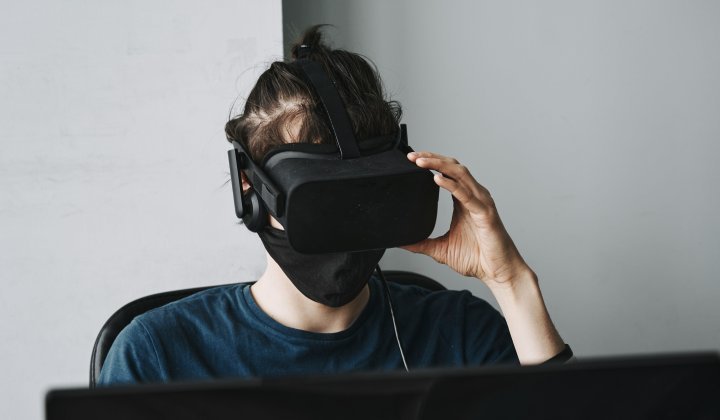As leaders, we are expected to be a reassuring presence, to help our people navigate these challenges. My role as a leadership and business coach is to help clients turn inwards and find their inner strength through the development of a strong sense of Self.
What is the Self?
The idea of the Self dates back to the philosophers of ancient Greece. Socrates famously declared that an unexamined life is not worth living. He believed he could condense all philosophical thinking into a single phrase: “Know yourself.”
Today, the Self is a central concept in analytical psychology. Some people may refer to it as the psyche. It represents our awareness of the world around us, both on a conscious and unconscious level. The Self forms the heart of all the systems in which we operate, be it our families, our work, or our societies. It’s the essence of who we are within those systems. This aligns with the view of the Self in African psychology, where the emphasis is on the relationship between community, culture, and environment (nature).
When talking about the Self, consider the analogy of an iceberg. Our consciousness is the part of the iceberg that is visible above the water. This is how we choose to show up in the world. Simultaneously, however, the unconscious, which has a far greater impact on how we view the world, is the larger portion of the iceberg that floats below the water. The unconscious is our “back story”, and includes how we grew up, our motivations, our core values, our personality type, and the cultural norms and beliefs that shape us.
Our goal as leaders is to try and make our unconscious conscious. We want to understand how and why we respond to events as we do. Swiss psychoanalyst Carl Jung described the aspects of the Self as:
- Seeking wholeness: The Self is trying to connect the conscious and unconscious parts of ourselves and bring them into alignment.
- Having opposites: For example, a person can be generally kind but have an angry temper. Our work with the Self is about integrating these opposites.
- Being multi-dimensional: We are made up of different facets, including the physical, mental, emotional, and spiritual. The Self strives to form a balance among them.
- Being interconnected: There is an interplay between the Self and systems within which we live. This means that whatever happens externally impacts us internally and vice versa.
Essentially, the Self is our personality. It is determined by how we were shaped as children and is not only how we see ourselves, but also how we would like to see ourselves. The Self is aspirational; it includes our motivations, desires, and values. It also includes our problem-solving abilities and how we make decisions.
Why is Self-discovery so important in a discussion about leadership?
Leadership in a VUCA (volatile, uncertain, complex, and ambiguous) world
In times of uncertainty, people look to leaders to give them guidance and direction. Leaders need to have a positive influence on the people around them, not only at work, but also within the family unit and society. We are looking for impactful leaders.
In a post-Covid world, a phenomenon called the "great resignation" has arisen. People are saying, “I can choose whether I want to work with this leader or not.” This is not only a physical manifestation of people resigning, it’s about people being "zombies" in the workplace. They are there in body, but are just going through the motions, they are not fully engaged in mind or spirit. This can have a detrimental impact on the sustainability of a business.
The impactful leader, therefore, not only needs to be goal-orientated, but also able to inspire their team to perform, and motivate them to show up while being fully engaged. They pay attention to the development of their people, ensuring they don’t stagnate. Thereby, they play a mentoring role. The impactful leader will lead by example and inspire their teams to want to learn from them.
Impactful leaders discern the best course of action for a specific context. For example, they will know whether their employees need to be involved in a decision or whether it is more beneficial to act decisively without team input. They have an awareness of organisational culture and work to ensure that it remains in healthy balance.
Authenticity, a key ingredient
To do this, leaders, have to be aware of the way they show up. They need to question who they are and what they stand for, examining their strengths and weaknesses. So, while we need leaders to be able to meet their leadership objective, they have to do so while still being able to relate well to people. This requires authenticity.
A word often used quite loosely, authenticity may come with the notion that people can just say and do what they want, or have a “this is me, take it or leave it” attitude. This is not the case.
Authenticity, in the context of Self-development, is about understanding the impact you have as a leader. It’s about acknowledging when things are hard for you, or when you need to have a conversation that might lead to conflicting views. You don’t need to be a leader who has all the answers, but rather one who’s willing to acknowledge that you need to figure things out. Authentic leaders develop wisdom and can tap into the resources around them – be it the team, the department, or another group – to find answers collectively.
Benefits of Self-development for the leader
Self-development is not only beneficial for the organisation and the teams being led; it is also beneficial for the well-being of leaders themselves. Leaders who are in tune with themselves are better able to cope with the pressures of our complex world. They can ask questions like, where do I spend my energy? How do I re-energise myself? What are the goals I want to meet? What am I aspiring to? They are able to integrate their professional persona with their personal vision and purpose in the world. I’ve noticed that my clients who go on this journey benefit in a number of ways:
- Greater Self-awareness
They develop the ability to pause and review situations. They are able to step out of the noise of day-to-day life and take a look at themselves dispassionately. They’re therefore better able to assess their strengths and weaknesses.
- Self-assuredness
They become more self-assured. Rather than being threatened by people, they are more willing to bring others on board to augment their strengths.
- Greater resilience
They have greater resilience making them better equipped to deal with inevitable setbacks and problems. This enables them to more easily choose a course of action that works for both themselves and their teams. They are willing to seek advice and help from other people. They have an increased ability to tap into their inner strength and keep moving forward.
- Higher EQ
Their levels of emotional intelligence (EQ) or maturity increase. They are not scared to ask, “What is really going on for me here? Why am I being triggered?” They become interested in their own behaviour. They are not judging themselves, but rather seek to understand why they behave the way they do. Enhanced EQ also helps them to tune into others and adapt their behaviours to meet new situations. Whether it is a team meeting or a presentation to the board, they learn to read the room through non-verbal cues such as body language and facial expressions. They also have greater success at resolving conflicts.
- Inspirational
They are confident but not arrogant. They are passionate about work and life, inspiring their team members to find that same enthusiasm within themselves.
We must remember that what happens in our internal world reflects in our external world. Impactful leadership is about showing up authentically. This not only builds trust in teams, but also liberates the leader, by allowing them to ask for help. It gives them greater resilience in this VUCA world. Yet, developing the Self requires the leader to take the time to do a deep dive into the journey of Self-discovery.
Nine steps to developing the Self
1. Lifelong journey
Self-development is a lifelong journey. It requires taking time to pause and reflect, whether it is through meditation, journaling, exercising, or talking to a partner, therapist or coach.
2. Acceptance
Accept who you are. Identify your unique strengths, but also acknowledge your weaknesses.
3. Compassion
Silence your strong inner critic and be compassionate with yourself.
4. Boundaries
Boundaries help you prioritise your own needs so that you have the physical and emotional reserves to show up in a way that adds value to your job, your family, your community.
5. Passions and interests
Find hobbies and activities that give you joy and fulfilment. In order to survive a complex world, we need to feed our souls.
6. Attentiveness
Be attentive to the stimuli you subject yourself to – food, media, even the people you spend time with. You need to balance the negativity of the external world by feeding your physical, emotional and spiritual Self with hope and optimism.
7. Self-care
Prioritise activities that reduce stress and increase your energy. While family and community are important, it’s vital to ensure you get valuable alone time, which can include getting enough sleep, exercise, and your own hobbies.
8. Ongoing learning
Keep learning. Read, listen to audio books or podcasts, and enrol in development courses.
9. Seeking support
We all need support. Seek help and advice from a mentor, therapist or a coach. Even spouses, friends, and peers can serve as sounding boards.
KEY TAKEAWAYS
- Self-development is crucial in leaders looking for greater sustainability in business.
- In this truly VUCA (volatile, uncertain, complex, and ambiguous) world, leaders need to show up in a compelling way.
- Self-development allows leaders to develop the capacity for greater interpersonal connection.
- Self-development helps leaders to better cope with their own personal stresses in times of uncertainty.
- Self-development takes time and a willingness to engage in a process of self-discovery.
Riëtte Ackermann is a professional associate at GIBS in the field of leadership development. She holds an MPhil in Personal & Professional Leadership: Industrial Psychology, a Post-Graduate Diploma in Counselling, a Certificate in Executive Coaching, and a Certificate in Business Coaching from GIBS. She runs her own consultancy, focusing on personal and professional development through executive coaching, facilitation and the design of learning and development interventions.







